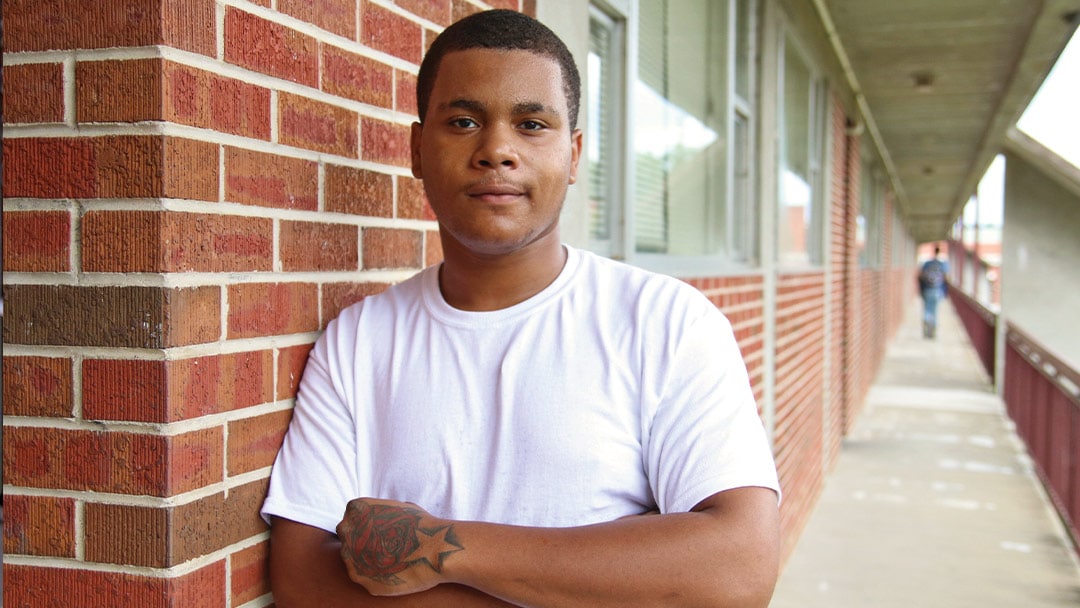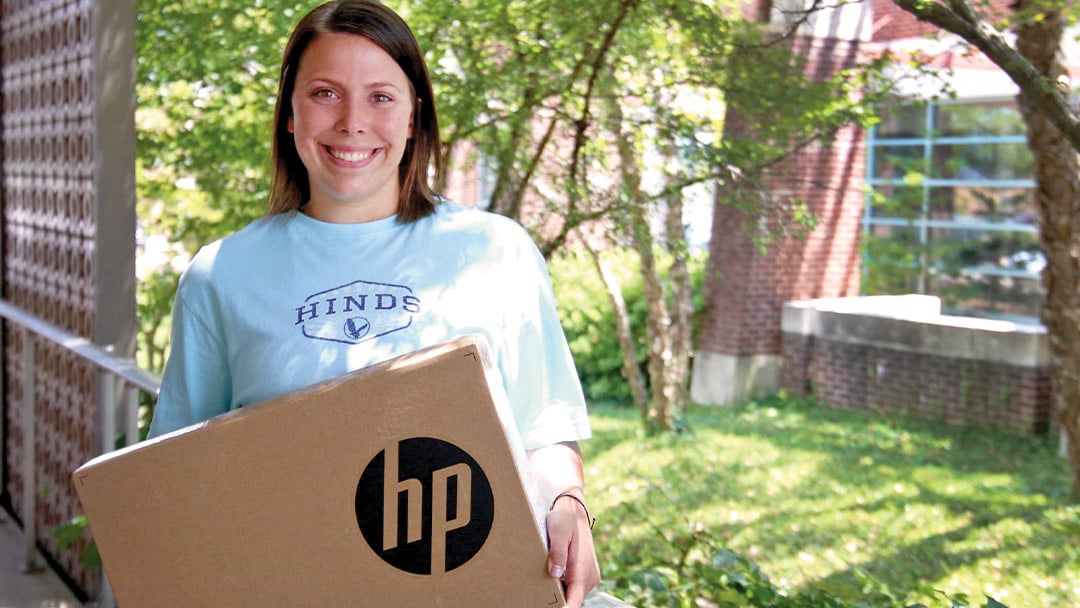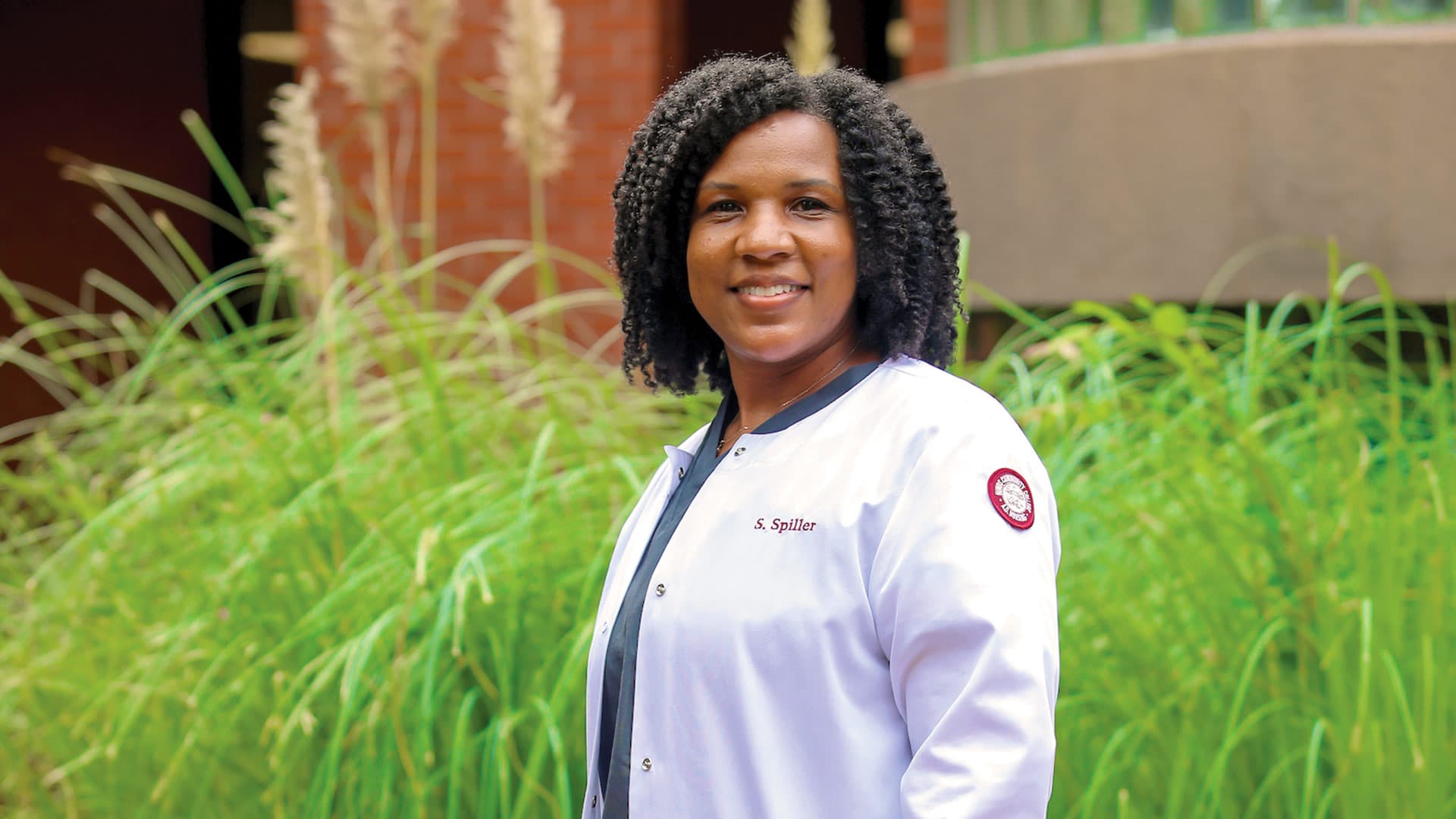Pictured above: Shoreika Spiller
In March, as Mississippi took steps to fight the COVID-19 pandemic, Hinds Community College’s main focus was immediately to do everything possible to help students continue their education.
Students did not return to on-campus classes after March spring break but instead were given a two-week break. During the second week, the Center for Teaching and Learning and eLearning personnel helped 758 instructors quickly move all coursework online. Information Technology provided Wi-Fi connections in Hinds parking lots. Student support personnel were equipped to work remotely. And Zoom video-conferencing, email, text messaging and phone calls replaced face-to-face communication with students.
But, as it became obvious that some students did not have all the resources they needed to work remotely, the college began looking for other ways to help.
In May, the college used $5.2 million in federal CARES Act – Higher Education Emergency Relief – funds to award direct-to-students emergency grants of at least $500 to more than 7,000 students.
The college also evaluated Spring 2020 student debt and decided to use another stream of federal CARES funds to cancel that semester’s student debt, which totaled $734,629, for any student enrolled before the pandemic. The college also prorated housing and meal charges and refunded residence hall students $1,191,047.
Yet, as the Fall 2020 semester approach it was evident that many students were uncertain about returning in the fall. Hinds President Dr. Stephen Vacik wanted to use other federal dollars of about $1.5 million to provide additional $500 grants for new or returning students in fall 2020.
Nearly 3,000 students have benefited, using money one of three ways:
- A credit toward the purchase of a laptop or device in a Hinds bookstore
- A credit toward Fall 2020 tuition, fees, supplies, room and board
- A cash award for other expenses related to the disruption of a student’s college education because of the coronavirus, including food and housing insecurities, transportation, health care, child care or loss of employment.
Vacik called the college’s grant program “Hinds CARES.”
“Because Hinds CARES, these one-time grants are designed to help college students and families fill the gap in paying for college expenses,” he said. “The way forward from this pandemic, for individuals, for the economy, for the general welfare of society, will be through higher education and the opportunities that it will provide. Our college intends to continue to lead in this effort.”
With a son attending Mississippi State University and paying for about $1,000 worth of nursing school textbooks for herself, Shoreika Spiller was grateful to learn about the $500 grant Hinds offered.
A licensed practical nurse at MEA Medical Clinic in Pearl, Spiller had been working extra hours to put back money to pay her son’s Mississippi State expenses and her own as she enrolled in Hinds’ Transition to RN nursing program.
“He went to summer school and that hit,” said Spiller, 46, of Pearl. “Then with me going to school this summer, I was out quite a bit of money. Our online books are very expensive. It was very welcome to have $500 coming back in.”
She is working days and attending night classes at Jackson Campus-Nursing/Allied Health Center. Spiller, who had already bought her textbooks when the money became available, chose the third option.

He said the grant will help out his parents. “I was grateful for it. Not many people have this kind of opportunity,” Ware said.

Lauren Kennon, 23, of Brandon, learned about the CARES grant when her mother saw it on social media. She has one degree from Hinds and is back for the Health Information Technology program.
“I chose the laptop because my brother and I have been sharing computers back and forth. My computer at home is kind of slow. It’s my grandmother’s. I decided I need something that runs quickly and gets faster Internet connection,” she said.
Hinds also received $20,000 along with the other 14 Mississippi community colleges from a $310,000 grant from the Woodward Hines Education Foundation to provide emergency relief to Mississippi community college students impacted by COVID-19.
“We have many students who were already facing financial challenges prior to COVID-19,” said Hinds Community College Foundation Executive Director Jackie Granberry. “Additionally, our Foundation has suffered tremendous investment losses, which will limit our ability to help.”
Those financial losses meant that interest generated by endowed scholarships also declined significantly, Granberry said.
“We reached out to our donors and many gave additional gifts to be used for scholarships for this fall. Their generosity is tremendously appreciated,” she said.
As students and employees made plans for on-campus classes to begin on Aug. 17, the college created the Healthy at Hinds guidelines that lay out health and safety protocol such as social distancing and wearing masks as well as testing students for coronavirus before they moved into residence halls.
More than $700,000 was spent to provide personal protective equipment (PPE) and other health and safety measures, such a disinfecting supplies, thermometer scanners and Plexiglas shields at the college’s six locations.
Anticipating an increase in coronavirus during the flu season, the college will move all on-campus classes to online after Nov. 20. Students will complete the remaining fall semester coursework online.
“The college makes nearly daily adjustments in its health and safety plan, yet we realize personal responsibility is perhaps the most critical element to stop the spread of the virus,” said Dr. Vacik. “Thus far, our students have adjusted very well to our protocols, and we are hopeful that face-to-face instruction can continue until Thanksgiving break.”
